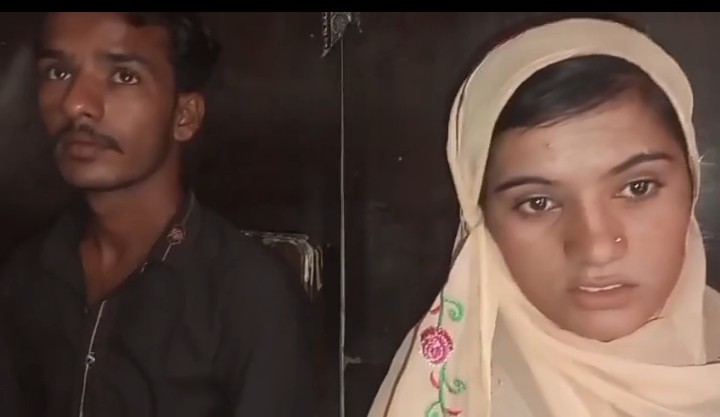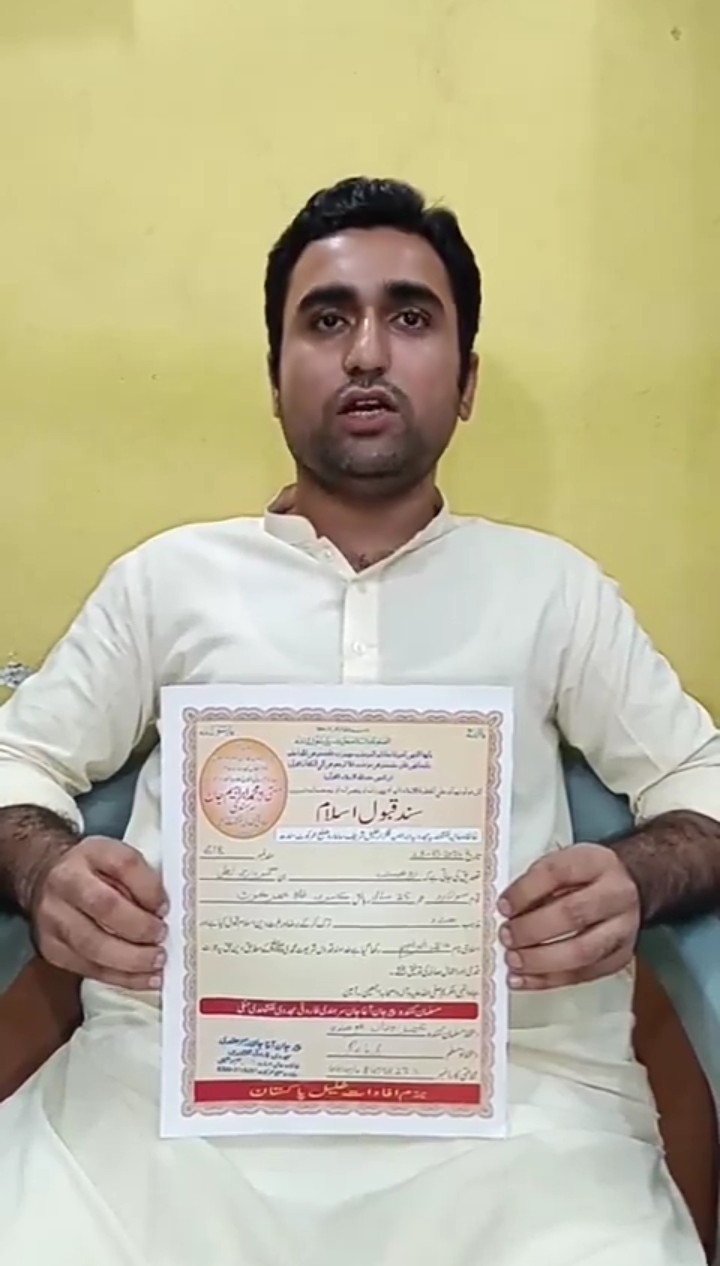Mirpurkhas, Sindh – In a development that has sparked both local and national attention, a Hindu girl named Sunita Maharaj, daughter of Taro Maharaj from Kunri, converted to Islam and married Niaz Muhammad, son of Muhammad Aarib from Kunri. The marriage was solemnized in a court in Mirpurkhas, where Sunita—now named Haajran following her conversion—also filed a petition seeking protection for herself and her husband.
According to court records, Haajran voluntarily converted to Islam and entered into marriage of her own will. She has requested legal protection, citing concerns for her safety in the aftermath of her religious conversion and marriage.
This case has stirred varied reactions among the public, civil society, and human rights organizations. While some advocate for personal freedom and the right to choose one’s religion and life partner, others have expressed concern over the recurring nature of such incidents in Sindh—especially among minority communities.
Minority Rights and Systemic Concerns
The Hindu community in Sindh has raised serious concerns, pointing to what they claim is a pattern of forced or coerced conversions involving underage or vulnerable girls. Activists and community leaders argue that such cases reflect deep-rooted systemic issues where legal safeguards are weak or poorly enforced, and justice for minorities remains elusive.
“The system feels broken. Injustice continues, and communities feel betrayed when their voices go unheard,” said one community elder, calling for impartial investigations and stronger protective measures for minority groups.
A Call for Transparency
This incident has once again highlighted the need for transparent legal processes and stronger institutional oversight. Advocacy groups urge the government to ensure that every conversion and marriage is genuinely consensual, particularly when minors or vulnerable individuals are involved.
As the case moves forward in the courts, it continues to draw scrutiny from both human rights defenders and political commentators. The outcome could set a significant precedent in addressing the balance between religious freedom and protection of minority rights in Pakistan.
For more updates and detailed coverage of this case and other issues affecting the Hindu and Sindhi communities in Sindh, Pakistan, stay tuned to Sindh Renaissance.






